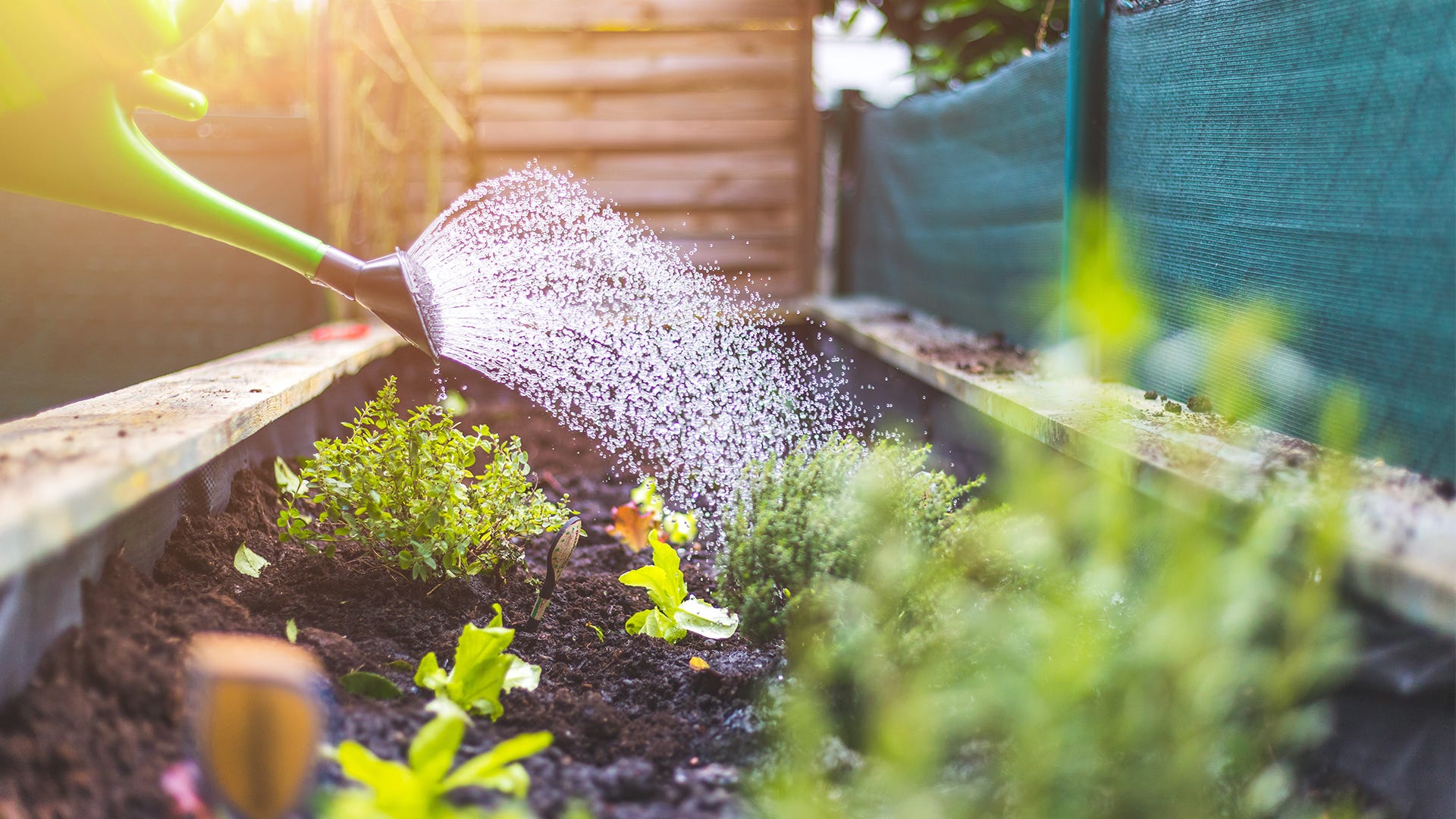
Whether you’re a soil gardener or a hydroponic gardener, a key challenge you’re likely to face is keeping your plants properly hydrated. You need to ensure your plants are receiving the appropriate amount of water without overwatering — and you need to be watering at just the right time.
Use the following watering tips to help maximize your organic gardening efforts throughout the growing season.
Watering an Organic Soil Garden
- Use your finger – When it comes to determining if it’s time to water your organic garden, your own finger can be an extremely valuable asset. Place your finger into the soil bed — the top two to three inches should be dry, while the soil below should be moist.
- Stage of plant growth has an impact – Where your plants are in the growing process plays an important role in determining appropriate water depth. If your plants are still in the seed or seedling stage, they need more water near the surface of the soil to develop plant roots. More established plants require water to a depth of five to six inches below the surface. The soil should be kept damp but not soggy — overwatered soil can deprive plant roots of oxygen and limit their ability to absorb water.
- Earlier is better – The best time to water your plants is early in the morning, particularly during warmer weather. This enables your plants and soil to absorb the moisture before the hot sun has a chance to dry it. If you can’t water in the morning, the next-best option is late afternoon. Be sure to water well before sunset — moisture that lingers overnight can promote the onset of fungal diseases.
- Use compost – Compost should be a part of your organic watering program, as it enhances the soil’s ability to hold moisture. Compost doesn’t have to fancy — it can contain a wide range of basic organic materials, such as food waste and leaves. For best results, shoot for a soil composition consisting of about five to six percent compost.
- Don’t use sprinklers – True organic gardeners avoid using oscillating sprinklers, because they waste precious water. A spray wand is an excellent watering device for smaller organic gardens. A soaker hose is a good choice for targeted deep-watering of plants without promoting weed growth.
Organic Hydroponic Gardening Watering Best Practices
Organic hydroponic gardening offers many advantages when it comes to plant watering. These systems use pumps and drippers that help regulate and control the water flow. The water can also be recycled, which helps in water conservation — and with keeping your water costs low.
Key hydroponic gardening watering tips include ensuring the pH level in the nutrient solution does not go below five and changing the reservoir solution a minimum of once a week. If you use an ebb-and-flow system, set the pump timer for five-minute intervals.
Whether you enjoy organic soil or organic hydroponic gardening, Safer® Brand has gardening solutions that will help you grow healthy, pest-free plants year after year, and are compliant for use in organic production.



